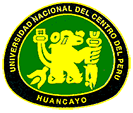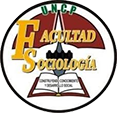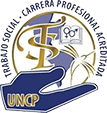Academic motivation and professional expectations in students: A systematic review
DOI:
https://doi.org/10.26490/uncp.sl.2023.7.2.1759Keywords:
Academic motivation, professional expectations, students, systematic reviewAbstract
Motivation is the engine of all human action. It is one of the most important factors for choosing and successfully studying a professional career. The moment of choosing a vocation in the life of a young person is decisive and is made on the basis of limited information and experience. In this sense, determining the academic motivations and professional expectations of students is extremely interesting since they involve personal, social and contextual factors about individuals and careers. This paper aims to develop a systematic review of the literature that studies academic motivation and career expectations. However, it is also an extension and development of an existing systematic review: Factors Related to University Students' Motivation and Instruments for Its Evaluation: A Systematic Review (Sanchez and Martinez, 2022). For the analysis we searched the Web of Science, Scopus, Scielo and RedALyC databases for the terms "academic motivation" and "professional expectations". Seventy-nine articles were found that met the criteria proposed for the research. These articles were published between 2009 and 2022.
References
Agnoli, S., Runco, M., Kirsch, C. y Corazza, G. (2018). The role of motivation in the prediction of creative achievement inside and outside of school environment. Thinking Skills And Creativity, 28, 167-176. https://doi.org/10.1016/j.tsc.2018.05.005
Alías, A., Aguilar, J. y Hernández Rodríguez, I. (2016). Motivaciones de los estudiantes Universitarios ante la práctica de actividad físico-deportiva de tiempo libre. Las actividades náuticas. Psychology, Society and Education, 8 (3), 229-242. http://dx.doi.org/10.25115/psye.v8i3.182
Almroth, M. C., László, K. D., Kosidou, K., y Galanti, M. R. (2018). Association between adolescents’ academic aspirations and expectations and mental health: A one-year follow-up study. European Journal of Public Health, 28(3), 504–509. https://doi.org/10.1093/eurpub/cky025
Boquin, M. (2022). Una mirada descriptiva sobre las expectativas de inserción laboral y/o educativa de jóvenes que egresan de la escuela secundaria Espacios en Blanco. Revista de Educación, vol. 1, núm. 32, 2022 Universidad Nacional del Centro de la Provincia de Buenos Aires, Argentina. https://www.redalyc.org/articulo.oa?id=384568494004
Bruno, F. E., Fernández Liporace, M., y Stover, J. B. (2020). Escala de motivación situacional académica para estudiantes universitarios: desarrollo y análisis psicométricos. Interdisciplinaria, 37(1), [fecha de Consulta 18 de diciembre de 2022]. ISSN: 0325-8203. Recuperado de: https://www.redalyc.org/articulo.oa?id=18062047008
Cao, L. (2012). Examining ‘active’ procrastination from a self-regulated learning perspective. Educational Psychology, 32(4), 515-545. https://doi.org/10.1080/01443410.2012.663722
Cho, M. y Castañeda, D. (2019). Motivational and affective engagement in learning Spanish with a mobile application. System, 81, 90-99. https://doi.org/10.1016/j.system.2019.01.008
Closas, A., Sanz de Acedo, M., & Ugarte, M. (2011). An Explanatory Model of the Relations Between Cognitive and Motivational Variables and Academic Goals. [Un modelo explicativo de las relaciones entre variables cognitivas y motivacionales y metas académicas]. Revista De Psicodidáctica, 16(1), 19-38.
Contreras López, M. J., Juárez Sánchez, J. P., y Ramírez Valverde, B. (2021). Perspectivas laborales de estudiantes de turismo en universidades de Puebla, México. Papeles de Población, 27(109),191-223.[fecha de Consulta 18 de Diciembre de 2022]. ISSN: 1405-7425. Recuperado de: https://www.redalyc.org/articulo.oa?id=11272505008
Davidson, P., Roslan, S., Omar, Z., Chong Abdullah, M., Looi, S., Neik, T. y Yong, B. (2019). Validation of competing structural models of inter-relationships in the teaching–learning ecosystem for two Malaysian STEM courses. Asia Pacific Education Review, 20(1), 15-36. https://doi.org/10.1007/s12564- 018-9567-0
De Los Santos, P. J., Gazo, P. F., y Ordóñez, J. L. (2019). Analysis of the motivations and expectations of master’s students in education. Educar, 55(2), 325–341. https://doi.org/10.5565/rev/educar.1016
Deci, E.L. y Ryan, R. M. (2008). Self-determination theory: A macrotheory of human motivation, development, and health. Canadian Psychology/Psychologie Canadienne, 49(3), 182-185. doi: https://doi.org/10.10 37/a0012801
Deci, E.L. y Ryan, R.M. (1985). Intrinsic motivation and self-determination in human behavior. Plenum Press. https://doi.org/10.1007/978-1-4899-2271-7
Deci, E.L. y Ryan, R.M. (2000). The “what” and “why” of goal pursuits: Human needs and the self-determination of behaviour. Psychological Inquiry, 11, 227-268. https://doi.org/10.1207/ S15327965PLI1104_01
Deci, E.L. y Ryan, R.M. (2002). Overview of self-determination theory: An organismic dialectical perspective. En E.L. Deci y R.M. Ryan (Eds.), Handbook of selfdetermination research (pp. 3–33). Rochester, NY: University of Rochester Press.
Dela Rosa, E. y Bernardo, A. (2013). Testing Multiple Goals Theory in an Asian Context: Filipino University Students' Motivation and Academic Achievement. International Journal Of School & Educational Psychology, 1(1), 47-57. https://doi.org/10.1080/21683603.2013.782594
Dermitzaki, I., Stavroussi, P., Vavougios, D. y Kotsis, K. (2013). Adaptation of the Students' Motivation Towards Science Learning (SMTSL) questionnaire in the Greek language. European Journal Of Psychology Of Education, 28(3), 747-766. https://doi.org/10.1007/s10212-012-0138-1
Dryer, R., Henning, M., Tyson, G. y Shaw, R. (2016). Academic Achievement Performance of University Students with Disability: Exploring the Influence of Non-academic Factors. International Journal Of Disability, Development And Education, 63(4), 419-430. https://doi.org/10.1080/1034912x.2015.1130217
Engelschalk, T., Steuer, G. y Dresel, M. (2017). Quantity and quality of motivational regulation among university students. Educational Psychology, 37(9), 1154-1170. https://doi.org/10.1080/01443410.2017.1322177
Ergin, A. y Karataş, H. (2018). Achievement-Oriented Motivation Levels of University Students. Hacettepe University Journal Of Education, 1-20. https://doi.org/10.16986/huje.2018036646
Fallah, N. (2014). Willingness to communicate in English, communication self- confidence, motivation, shyness and teacher immediacy among Iranian English-major undergraduates: A structural equation modeling approach. Learning And Individual Differences, 30, 140-147. https://doi.org/10.1016/j.lindif.2013.12.006
Fan, W. y Zhang, L. (2009). Are achievement motivation and thinking styles related? A visit among Chinese university students. Learning And Individual Differences, 19(2), 299-303. https://doi.org/10.1016/j.lindif.2008.10.005
Faurie, I. (2012). Self-efficacy and dynamic of professional project [Sentiments d’efficacité personnelle et dynamique du projet professionnel]. Psychologie Du Travail Et Des Organisations, 18(1), 37-60. https://doi.org/10.1016/s1420-2530(16)30100-5
Furia, A. C., Lee, R., Strother, M. L. y Huang, T. T. K. (2009). College students' motivation to achieve and maintain a healthy weight. American Journal of Health Behavior, 33(3), 256-263. https://doi.org/10.5993/AJHB.33.3.4
García-Ros, R., Pérez-González, F., Cavas-Martínez, F. y Tomás, J. (2018). Social interaction learning strategies, motivation, first-year students’ experiences and permanence in university studies. Educational Psychology, 38(4), 451-469. https://doi.org/10.1080/01443410.2017.1394448
Ghonsooly, B., Khajavy, G. y Asadpour, S. (2012). Willingness to Communicate in English Among Iranian Non–English Major University Students. Journal Of Language And Social Psychology, 31(2), 197-211. https://doi.org/10.1177/0261927x12438538
Gil, P., Bernaras, E., Elizalde, L. y Arrieta, M. (2009). Estrategias de aprendizaje y patrones de motivación del alumnado de cuatro titulaciones del Campus de Gipuzkoa. Infancia Y Aprendizaje, 32(3), 329-341. https://doi.org/10.1174/021037009788964132
Gillet, N., Morin, A. y Reeve, J. (2017). Stability, change, and implications of students’ motivation profiles: A latent transition analysis. Contemporary Educational Psychology, 51, 222-239. https://doi.org/10.1016/j.cedpsych.2017.08.006
Girelli, L., Alivernini, F., Lucidi, F., Cozzolino, M., Savarese, G., Sibilio, M. y Salvatore, S. (2018). Autonomy Supportive Contexts, Autonomous Motivation, and Self-Efficacy Predict Academic Adjustment of First-Year University Students. Frontiers In Education, 3. https://doi.org/10.3389/feduc.2018.00095
Gómez-López, M., Ruiz-Juan, F., García-Montes, M., Granero-Gallegos, A. y Piéron, M. (2009). Motivaciones aludidas por los universitarios que practican actividades físico-deportivas. Revista Latinoamericana de Psicología, 41(3), 519-532. http://dx.doi.org/10.14349/rlp.v41i3.424
González Valero, G., Zurita Ortega, F., Pérez Cortés, A., Padial Ruz, R., Ubago Jiménez, J. y Chacón Cuberos, R. (2019). Estudio descriptivo del clima motivacional percibido hacia el deporte según el sexo de los futuros docentes de Educación Física. Sportis. Scientific Journal Of School Sport, Physical Education And Psychomotricity, 5(1), 85-100. https://doi.org/10.17979/sportis.2019.5.1.3479
Grund, A. y Fries, S. (2012). Motivational interference in study–leisure conflicts: how opportunity costs affect the self-regulation of university students. Educational Psychology, 32(5), 589-612. https://doi.org/10.1080/01443410.2012.674005
Grunschel, C., Schwinger, M., Steinmayr, R. y Fries, S. (2016). Effects of using motivational regulation strategies on students' academic procrastination, academic performance, and well-being. Learning And Individual Differences, 49, 162-170. https://doi.org/10.1016/j.lindif.2016.06.008
Gutiérrez, M. y Tomás, J. (2018). Clima motivacional en clase, motivación y éxito académico en estudiantes universitarios. Revista De Psicodidáctica, 23(2), 94-101. https://doi.org/10.1016/j.psicod.2018.02.001
Hervás-Torres, M., Fernández-Martín, F., Arco-Tirado, J. y Miñaca-Laprida, M. (2017). Effects of a Service-Learning program on university students. Electronic Journal Of Research In Educational Psychology, 15(1), 126-146. https://doi.org/10.14204/ejrep.41.16049
Hirschi, A., Lee, B., Porfeli, E. y Vondracek, F. (2013). Proactive motivation and engagement in career behaviors: Investigating direct, mediated, and moderated effects. Journal Of Vocational Behavior, 83(1), 31-40. https://doi.org/10.1016/j.jvb.2013.02.003
Hortigüela Alcalá, D., Palacios Picos, A. y López Pastor, V. (2019). The impact of formative and shared or co-assessment on the acquisition of transversal competences in higher education. Assessment & Evaluation In Higher Education, 44(6), 933-945. https://doi.org/10.1080/02602938.2018.1530341
Instituto de Estudios Peruanos. (2015). La educación universitaria en el Perú: democracia, expansión y desigualdades (R. Cuenca, Ed.) [Serie Estudios sobre Desigualdad, 10]. IEP Instituto de Estudios Peruanos. https://repositorio.iep.org.pe/bitstream/handle/IEP/603/estudiossobredesigualdad10.pdf;jsessionid=E59C5441B4A133A3396C1A6CAD1EE978?sequence=2
Joo, Y., So, H. y Kim, N. (2018). Examination of relationships among students' self-determination, technology acceptance, satisfaction, and continuance intention to use K-MOOCs. Computers & Education, 122, 260-272. https://doi.org/10.1016/j.compedu.2018.01.003
Kertechian, S. (2018). Conscientiousness as a key to success for academic achievement among French university students enrolled in management studies. The International Journal Of Management Education, 16(2), 154- 165. https://doi.org/10.1016/j.ijme.2018.02.003
Kim, J., Brown, S. y Yang, H. (2019). Types of leisure, leisure motivation, and well-being in university students. World Leisure Journal, 61(1), 43-57. https://doi.org/10.1080/16078055.2018.1545691
Kuhn, E. A. y Gabriel, U. (2014). Actual and Potential Gender-Fair Language Use: The Role of Language Competence and the Motivation to Use Accurate Language. Journal of Language and Social Psychology, 33(2), 214– 225. https://doi.org/10.1177/0261927X13504297
Li, M., Frieze, I., Nokes-Malach, T. y Cheong, J. (2013). Do friends always help your studies? Mediating processes between social relations and academic motivation. Social Psychology Of Education, 16(1), 129-149. https://doi.org/10.1007/s11218-012-9203-5
Lin, Y. (2019). Taiwanese EFL Learners’ Willingness to Communicate in English in the Classroom: Impacts of Personality, Affect, Motivation, and Communication Confidence. The Asia-Pacific Education Researcher, 28(2), 101-113. https://doi.org/10.1007/s40299-018-0417-y
Liu, E., Ye, C. y Yeung, D. (2014). Effects of approach to learning and self- perceived overall competence on academic performance of university students. Learning And Individual Differences, 39, 199-204. https://doi.org/10.1016/j.lindif.2015.03.004
Llanes Ordóñez, J.; Méndez-Ulrich, J.L. y Montané López, A. (2021). Motivación y satisfacción académica de los estudiantes de educación: una visión internacional. Educación XX1, 24(1), 45-68, http://doi.org/10.5944/educXX1.26491
Los, R. y Schweinle, A. (2019). The interaction between student motivation and the instructional environment on academic outcome: a hierarchical linear model. Social Psychology Of Education, 22(2), 471-500. https://doi.org/10.1007/s11218-019-09487-5
Lou, N., Masuda, T. y Li, L. (2017). Decremental mindsets and prevention- focused motivation: An extended framework of implicit theories of intelligence. Learning And Individual Differences, 59, 96-106. https://doi.org/10.1016/j.lindif.2017.08.007
Machado do Nascimento, L., y Steren dos Santos, B. (2021). Procesos motivacionales de los estudiantes del curso de Pedagogía y sus relaciones para la permanencia en la universidad TT - Processos motivacionais de estudantes do curso de Pedagogia e suas relações para a permanência na universidade TT - Motivational processes of Pedagogy course students and their relationships for the stay at the university. InterCambios. Dilemas y transiciones de la Educación Superior, 8(1), 80–89. https://doi.org/10.29156/inter.8.1.9
Maherzi, S. (2011). Perceptions of classroom climate and motivation to study English in Saudi Arabia: Developing a questionnaire to measure perceptions and motivation. Electronic Journal Of Research In Education Psychology, 9(2). https://doi.org/10.25115/ejrep.v9i24.1473
Makransky, G. y Petersen, G. (2019). Investigating the process of learning with desktop virtual reality: A structural equation modeling approach. Computers & Education, 134, 15-30. https://doi.org/10.1016/j.compedu.2019.02.002
Manganelli, S., Cavicchiolo, E., Mallia, L., Biasi, V., Lucidi, F., & Alivernini, F. (2019). The interplay between self-determined motivation, self-regulated cognitive strategies, and prior achievement in predicting academic performance. Educational Psychology, 39(4), 470-488. https://doi.org/10.1080/01443410.2019.1572104
Mayta-Tristán, P., Pereyra-Elías, R., Montenegro-Idrogo, J. J., et al. (2017). Profile and professional expectations of medical students from 11 Latin American countries: The Red-LIRHUS project. BMC Research Notes, 10, 159. https://doi.org/10.1186/s13104-017-2479-y
Meijer, E., Cleiren, M., Dusseldorp, E., Buurman, V., Hogervorst, R. y Heiser, W. (2019). Cross‐Validated Prediction of Academic Performance of First‐Year University Students: Identifying Risk Factors in a Nonselective Environment. Educational Measurement: Issues And Practice, 38(1), 36- 47. https://doi.org/10.1111/emip.12204
Mellado, C., & Scherman, A. (2015). Estudiantes de periodismo en Chile: Percepción sobre la profesión, su futuro laboral y el desempeño de los medios. https://silo.tips/download/estudiantes-de-periodismo-en-chile
Moreira Choez, J. S. & Zambrano Alcívar, M. V. (2022). Educación virtual: un análisis en tiempos de pandemia [Virtual learning: an analysis during the pandemic]. REVISTA RELEP. Educación y Pedagogía en Latinoamérica, 4(1). https://doi.org/10.5377/relep.v4i1.11485
Musso, M., Boekaerts, M., Segers, M. y Cascallar, E. (2019). Individual differences in basic cognitive processes and self-regulated learning: Their interaction effects on math performance. Learning And Individual Differences, 71, 58-70. https://doi.org/10.1016/j.lindif.2019.03.003
Navea-Martín, A., y Suárez-Riveiro, J. M. (2017). Study on the use of self-motivational strategies in university students. Psicologia Educativa, 23(2), 115–121. https://doi.org/10.1016/j.pse.2016.08.001
Okuniewski, J. (2014). Age and Gender Effects on Motivation and Attitudes in German Learning: The Polish Context. Psychology Of Language And Communication, 18(3), 251-262. https://doi.org/10.2478/plc-2014-0017
Olani, A. (2009). Predicción del éxito académico de estudiantes durante el primer año de universidad. Electronic Journal of Research in Educational Psychology, 7(3),1053-1072
Oller Alonso, M., Arcila Calderón, C., & Olivera Pérez, D. (2019). Pre-professional journalistic culture of Cuba, Ecuador and Venezuela. Motivation, expectations and professional experience of students of journalism and social communication. Revista Latina de Comunicación Social, 74, 477–498. https://doi.org/10.4185/RLCS-2019-1341
Önder, İ., Beşoluk, Ş., İskender, M., Masal, E. y Demirhan, E. (2014). Circadian Preferences, Sleep Quality and Sleep Patterns, Personality, Academic Motivation and Academic Achievement of university students. Learning And Individual Differences, 32, 184-192. https://doi.org/10.1016/j.lindif.2014.02.003
OPS/OMS. (2020, 9 de abril). La pandemia causada por COVID-19 es uno de los más importantes retos que nos hemos enfrentado en la historia reciente de las Américas, dice Directora de la OPS. [Comunicado de prensa]. https://www.paho.org/es/noticias/9-4-2020-pandemia-causada-por-covid-19-es-uno-mas-importantes-retos-que-nos-hemos-enfrentado
Panadero, E., Alonso-Tapia, J. y Huertas, J. (2014). Rubrics vs. self-assessment scripts: effects on first year university students’ self-regulation and performance / Rúbricas y guiones de autoevaluación: efectos sobre la autorregulación y el rendimiento de estudiantes universitarios de primer año. Infancia Y Aprendizaje, 37(1), 149-183. https://doi.org/10.1080/02103702.2014.881655
Pekrun, R., Goetz, T., Daniels, L. M., Stupnisky, R. H. y Perry, R. P. (2010). Boredom in achievement settings: Exploring control–value antecedents and performance outcomes of a neglected emotion. Journal of Educational Psychology, 102(3), 531-549. http://dx.doi.org/10.1037/a0019243
Peña Loaiza, G. X., Sánchez Padilla, Y. L., Villavicencio Aguilar, C. E., y Cedillo Chalaco, L. F. (2022). Motivación y satisfacción con la profesión elegida en estudiantes de psicología. ACADEMO, 9(1),73-84. [fecha de Consulta 18 de diciembre de 2022]. ISSN: Recuperado de: https://www.redalyc.org/articulo.oa?id=688272308007
Rabadán-Zurita, M. y Orgambídez-Ramos, A. (2018). Ansiedad idiomática y motivación hacia el español como lengua extranjera en estudiantes universitarios portugueses: un estudio exploratorio. Estudios Sobre Educación, 35, 517-533. https://doi.org/10.15581/004.35.517-533
Radmehr, F., Laban, H., Overton, J. y Bakker, L. (2018). Motivational Strategies of University Students in New Zealand: The Role of Ethnicity. The Asia- Pacific Education Researcher, 27(3), 245-255. https://doi.org/10.1007/s40299-018-0383-4
Raitz, T. R., Corti, F., Ferreira, D. J., Vanzuita, A., y Zeni, M. (2019). Transition from master’s degree programs: Motivation and expectations of students at two Brazilian universities. Educar, 55(2), 343–359. https://doi.org/10.5565/rev/educar.1017
Ramírez-Dorantes, M., Canto Rodríguez, J., Bueno-Álvarez, J. y Echazarreta- Moreno, A. (2013). Psychometric Validation of the Motivated Strategies for Learning Questionnaire with Mexican University Students. Electronic Journal Of Research In Educational Psychology, 11(1), 193-214.
Rodríguez Hernández, M., Mendoza Rodríguez, C., Zamora Rodríguez, L., Reyes Luna, B., Chamizo Cabrera, M., y Gámez Díaz, O. (2016). Motivaciones y expectativas profesionales de los estudiantes de quinto año de la carrera de Medicina TT - Motivations and professional expectations of students in the fifth year of the medical career. EDUMECENTRO, 8(4), 130–146. http://scielo.sld.cu/scielo.php?script=sci_arttext&pid=S2077-28742016000700010&lang=pt
Rodríguez Rocha, E., Sebastián Gómez, P., y Aureli, M. (2021). Origen de clase, diploma educativo y expectativas laborales de los técnicos superiores en la provincia de Córdoba, Argentina. Perfiles Educativos, XLIII(174),42-62.[fecha de Consulta 18 de Diciembre de 2022]. ISSN: 0185-2698. Recuperado de: https://www.redalyc.org/articulo.oa?id=13271610004
Sánchez Bolívar, L., y Martínez Martínez, A. (2022). Factores relacionados con la motivación del alumnado universitario e instrumentos para su evaluación: Una revisión sistemática. Revista Electrónica Educare, 26(2),1-22.[fecha de Consulta 18 de Diciembre de 2022]. ISSN: Recuperado de: https://www.redalyc.org/articulo.oa?id=194172481026
Sánchez de Miguel, M., Lizaso, I., Hermosilla, D., Alcover, C., Goudas, M. y Arranz-Freijó, E. (2017). Preliminary validation of the Perceived Locus of Causality scale for academic motivation in the context of university studies (PLOC-U). British Journal Of Educational Psychology, 87(4), 558-572. https://doi.org/10.1111/bjep.12164
Setiyadi, A. y Wicaksono, B. (2019). Exploring motivational orientations of English as foreign language (EFL) learners: A case study in Indonesia. South African Journal Of Education, 39(1), 1-12. https://doi.org/10.15700/saje.v39n1a1500
Sicilia, Á., Alcaraz-Ibañez, M., Lirola, M. y Burgueño, R. (2017). Propiedades psicométricas de la versión española del Cuestionario de Contenido de Metas en el Ejercicio. Revista Latinoamericana De Psicología, 49(3), 182- 193. https://doi.org/10.1016/j.rlp.2016.10.001
Soares, A. B., Monteiro, M. C., Medeiros, H. C. P., Maia, F. de A., y Barros, R. de S. N. (2021). Adaptação acadêmica à universidade: relações entre motivação, expectativas e habilidades sociais tt - Adaptación académica a la universidad: relaciones entre motivación, expectativas y habilidades sociales TT - Academic adaptation to the university: relationships among motivation, expectations and social skills. Psicologia Escolar e Educacional, 25. https://doi.org/10.1590/2175-35392021226072
Suhlmann, M., Sassenberg, K., Nagengast, B. y Trautwein, U. (2018). Belonging Mediates Effects of Student-University Fit on Well-Being, Motivation, and Dropout Intention. Social Psychology, 49(1), 16-28. https://doi.org/10.1027/1864-9335/a000325
Tabernero, C. y Hernández, B. (2012). A Motivational Model for Environmentally Responsible Behavior. The Spanish Journal of Psychology, 15(2), 648- 658. https://doi.org/10.5209/rev_SJOP.2012.v15.n2.38876
Tapia Bernabé, I. R., (2022). Las expectativas laborales en estudiantes de la educación profesional técnica. Revista Latinoamericana de Estudios Educativos (México), LII (2),93-119.[fecha de Consulta 18 de Diciembre de 2022]. ISSN: 0185-1284. Recuperado de: https://www.redalyc.org/articulo.oa?id=27069733013
Tasgin, A. y Coskun, G. (2018). The Relationship between Academic Motivations and University Students’ Attitudes towards Learning. International Journal Of Instruction, 11(4), 935-950. https://doi.org/10.12973/iji.2018.11459a
Tempelaar, D., Rienties, B., Giesbers, B. y Gijselaers, W. (2015). The Pivotal Role of Effort Beliefs in Mediating Implicit Theories of Intelligence and Achievement Goals and Academic Motivations. Social Psychology Of Education, 18(1), 101-120. https://doi.org/10.1007/s11218-014-9281-7
Teo, T., Hoi, C., Gao, X. y Lv, L. (2019). What Motivates Chinese University Students to Learn Japanese? Understanding Their Motivation in Terms of ‘Posture’. The Modern Language Journal, 103(1), 327-342. https://doi.org/10.1111/modl.12546
Turki, F., Jdaitawi, M. y Sheta, H. (2018). Fostering positive adjustment behaviour: Social connectedness, achievement motivation and emotional- social learning among male and female university students. Active Learning In Higher Education, 19(2), 145-158. https://doi.org/10.1177/1469787417731202
Tze, V., Daniels, L., Klassen, R. y Li, J. (2013). Canadian and Chinese university students' approaches to coping with academic boredom. Learning And Individual Differences, 23, 32-43. https://doi.org/10.1016/j.lindif.2012.10.015
Uçar, H. y Soruç, A. (2018). Examining Turkish University Students’ Sense of Achievement, Motivation, and Anxiety: A Comparison of the English- and French-Medium Education Systems. Eurasian Journal of Applied Linguistics, 4 (2), 177-191. https://doi.org/10.32601/ejal.464096
Urrútia, G. y Bonfill, X. (2010). Declaración PRISMA: una propuesta para mejorar la publicación de revisiones sistemáticas y metaanálisis. Medicina Clínica, 135(11), 507-511
Valenzuela, J., Nieto, A. y Saiz, C. (2011). Critical Thinking Motivational Scale: a contribution to the study of relationship between critical thinking and motivation. Electronic Journal Of Research In Education Psychology, 9(2). https://doi.org/10.25115/ejrep.v9i24.1475
Downloads
Published
Issue
Section
License
Copyright (c) 2023 Rodolfo Franco Rojas Virijivich

This work is licensed under a Creative Commons Attribution 4.0 International License.

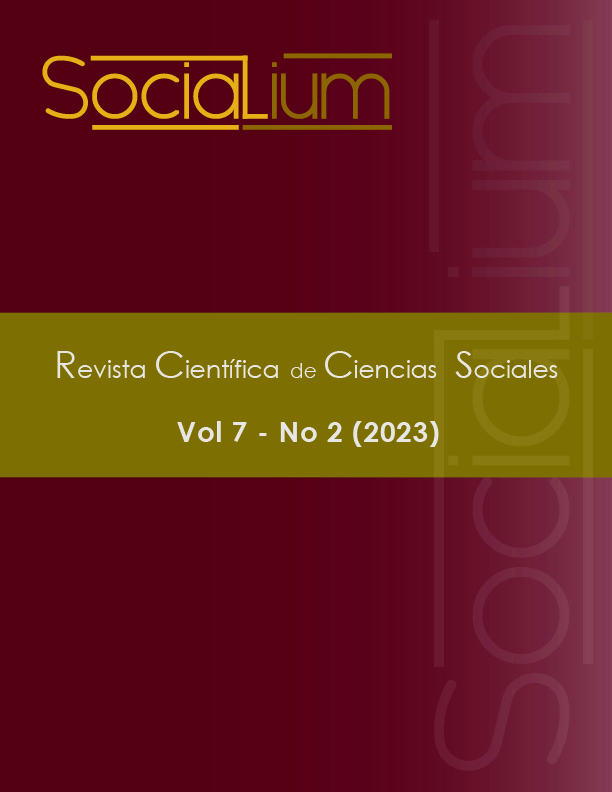

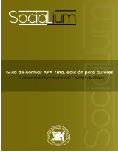




.jpg)










